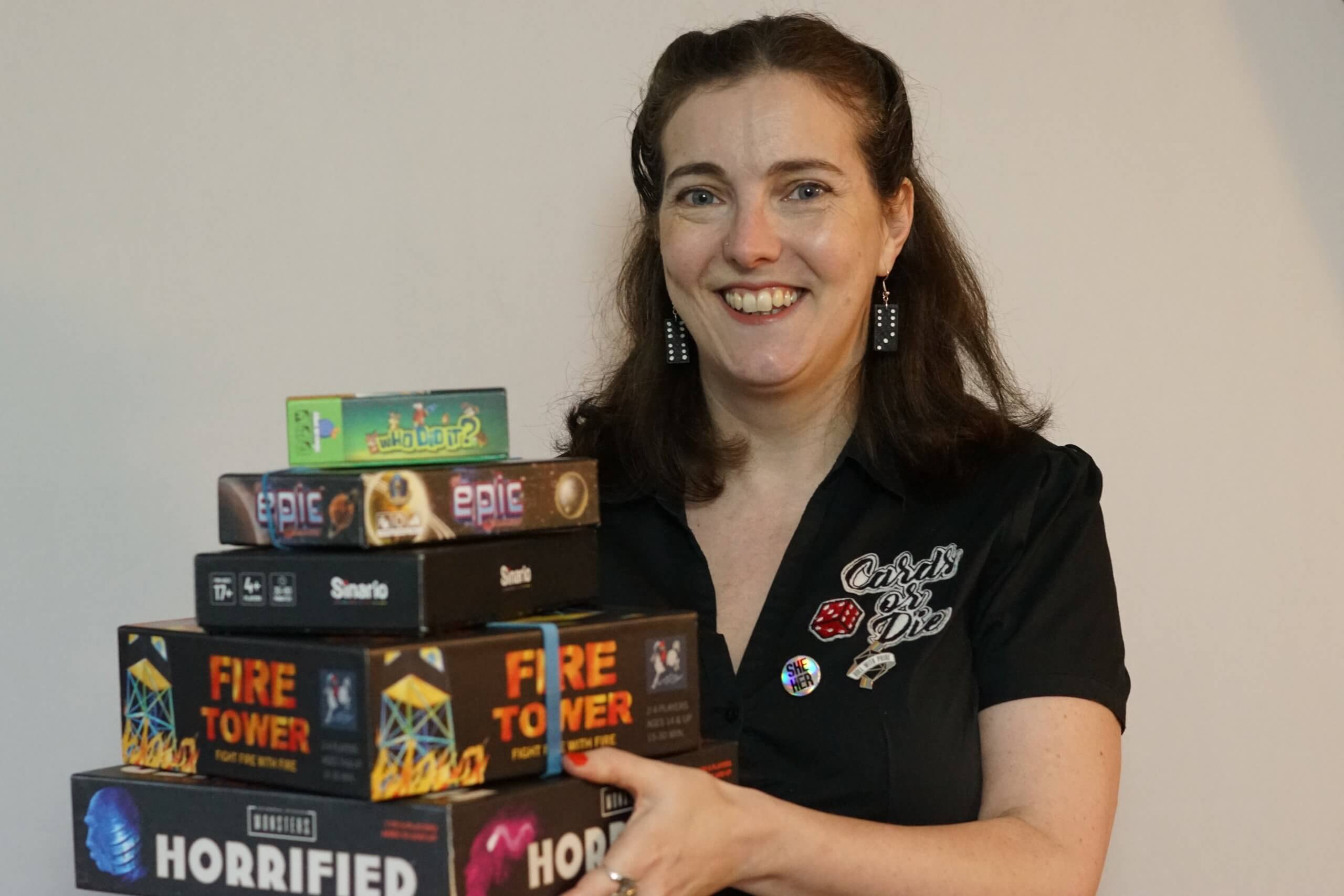Mindfulness is big business. You can get apps for it, you can go on lengthy and costly retreats. Headspace is a massively popular app that made the news during lockdown. Not only was it recording huge profits its exponential growth was also creating a stressful environment for its own employees. Staff were skipping lunch and working extra hours to hit short deadlines – they were stressed and unhappy. Ironic when they were working on an app that helped lots of us access meditation and be more mindful. The mindfulness business is just that – a business and if we’re not careful we can get caught up in it. It’s important to step back and get what we need out of it.
Mind defines ‘Mindfulness’ as: ‘a technique you can learn which involves noticing what’s happening in the present moment, without judgement. You might take notice and be aware of your mind, body or surroundings.’ That’s it. There is no specific activity you have to do – I love yoga, I use guided meditation from time to time, I dance and I try to sit in the garden and drink a cup of tea most days. And, of course I play boardgames. It doesn’t have to cost the earth and mindfulness looks different for everyone. I thought I’d tell you a bit about what it looks like for me in terms of boardgames. I’d love to hear what it looks like for you.
All of those activities work for me because most of them require a high level of concentration; they are absorbing; they engage my senses. With the exception of sitting in the garden (which is the one I’m worst at doing) they also require some organisation, another person and an allotted time. If we look at the definition above: they are all centred in the present moment. They allow me to take notice of my mind, body and surroundings.
Are boardgames mindful?
That very much depends on you. I find boardgames mindful and they are definitely worth considering under that lens. When I play a game that I love, or when I am learning a new game, I am very much in the ‘present moment’. At the most I’m thinking a few turns ahead. But even then my attention is not on the things I haven’t ticked off my to do list, I am solely focused on the game. I am thinking about what I should do, what I could do, what you might do, what you might not have noticed yet here in this one moment! If it’s a fast reactions game and there is no strategy then I am 100% focussed on being fast. The fastest in fact.
But what about the ‘judgement’ element of the definition? Well, I’m playing and it really doesn’t matter if I win or lose – I’d like to do better than I did last time. It’s only a game – just play. In his book Essentialism, Greg McKeown says of play: ‘Play stimulates the parts of the brain involved in… carefree, unbound exploration.’ He views play as essential. Our judgy adult perspective is wont to protest about the silliness of play and interrogate its purpose. With boardgames we can tell our judgy brains that it is an intellectual pursuit, we are adding to our cognitive reserve, expanding our brains. It just looks like we’re shouting random words and stealing cards from people.
Boardgames are rarely physical in the obvious sense. I’m never in the mood for a game of twister. However, there is a physical side that appeals to the senses. Many of the games I would name as my favourites are pretty games with nice, tactile components. It is the feel of the tile or block and the sound it makes when it touches the board or the other pieces that contributes to the mindful experience here. Think the pebbles in Qawale, putting your hand in the Azul tile bag to draw new tiles. When I’m playing I am ‘aware of… mind’ and ‘body’.
Which boardgames are Mindful?
I have many games which facilitate a mindful gaming experience. It’s up to you what you view as mindful and what kind of mindfulness you are after but these are definitely worth considering.
Roll & Colour by Dissent Games
Dissent games have a whole range of games on greetings cards and some free downloadable games on their site. In these games you roll the dice to give you the co-ordinates of a square in which you will colour one object. There are different rules about scoring – like not letting same colours touch or making sure you’ve used all the colours. The combination of careful choice of dice to use and colouring in makes for a very soothing and mindful game.
Puzzle Style Games
I find puzzle style games particularly mindful. I mentioned Azul above and this is a perfect example. It’s fairly easy to get playing. You choose groups of coloured tiles from a central supply and play them onto your board, scoring for grouping pieces, having sets and completing areas of the board. There is always an optimal order to select and play tiles in, and you have to adapt your plans based on availability as tiles are randomly placed in the central supply. There are lots of versions of Azul to try out and each one comes with beautiful tiles.
I also love Calico which is about making quilts and attracting cats on to your quilt and Patchwork which is about tessellating shapes and leaving minimal gaps – these offer mindful escapes as my brain wrestles with the spatial puzzles they provide.
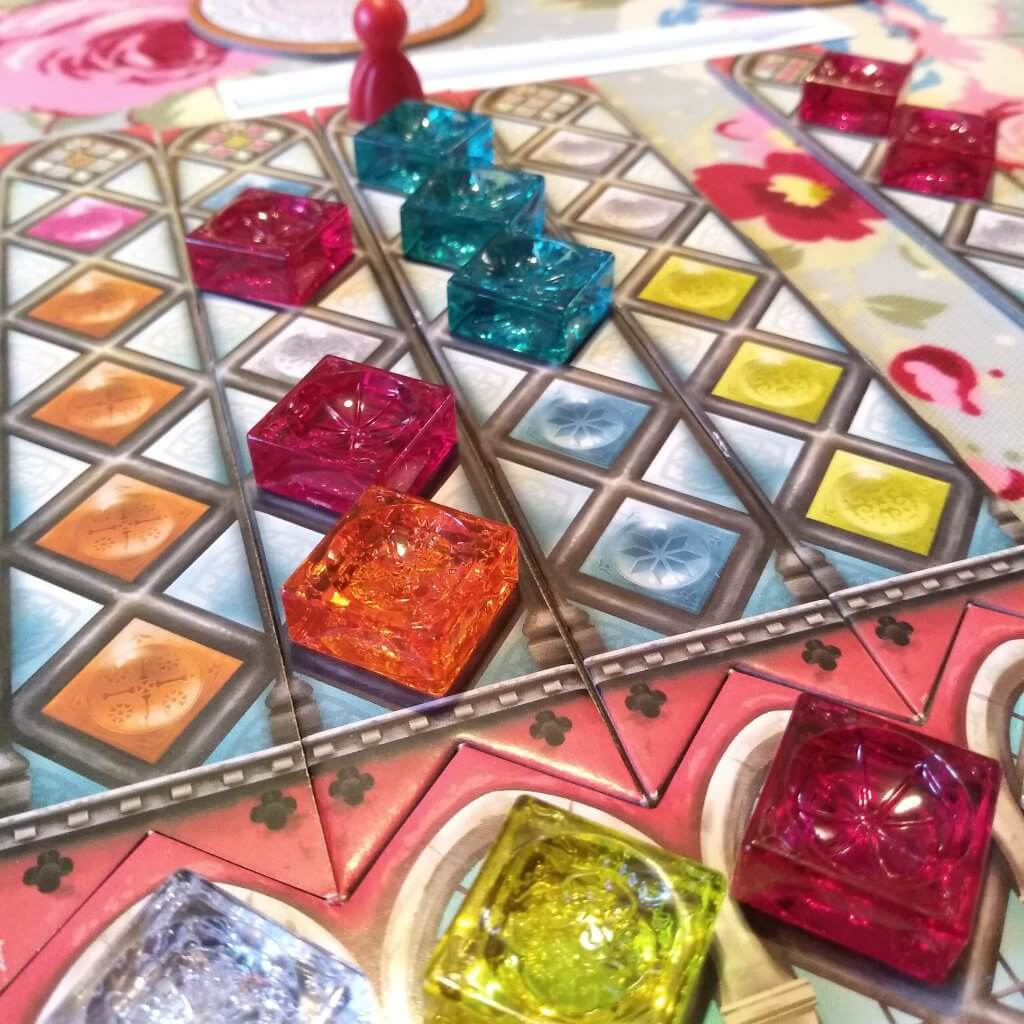
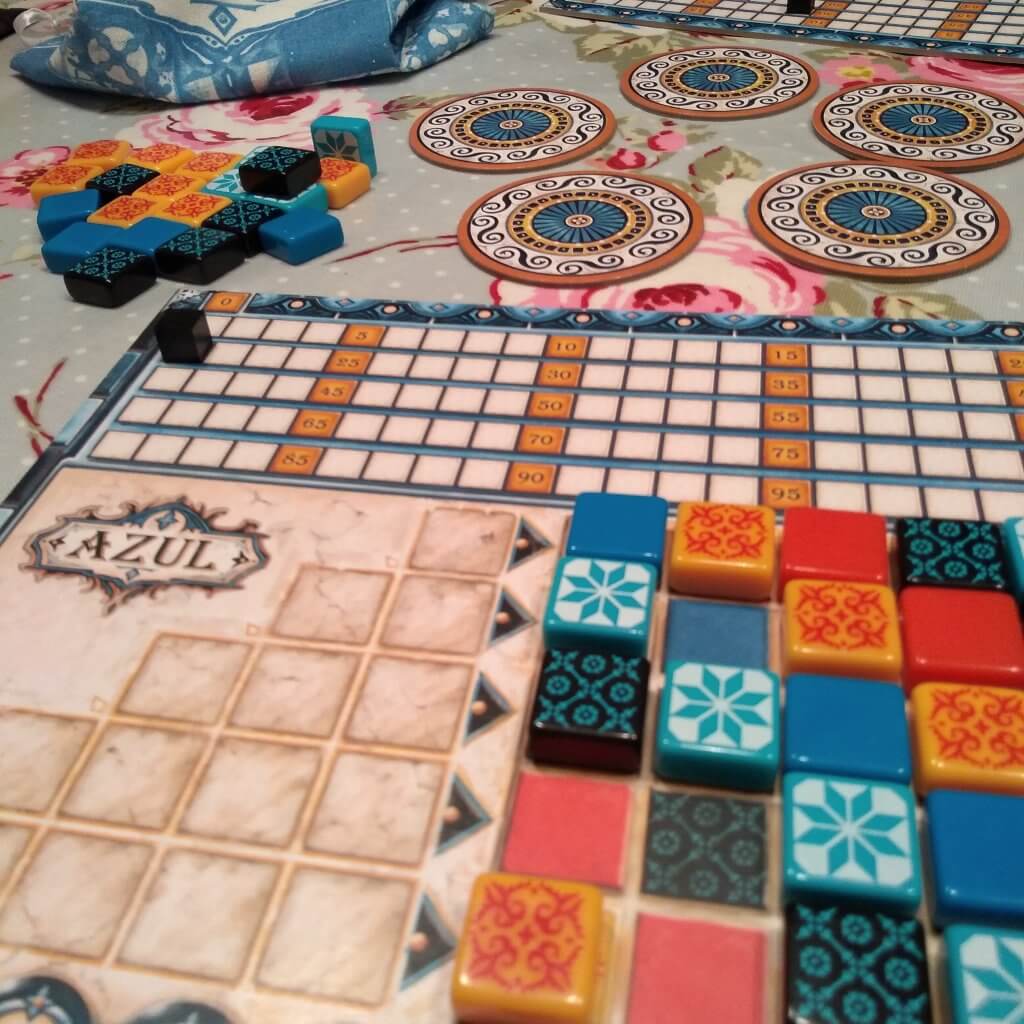
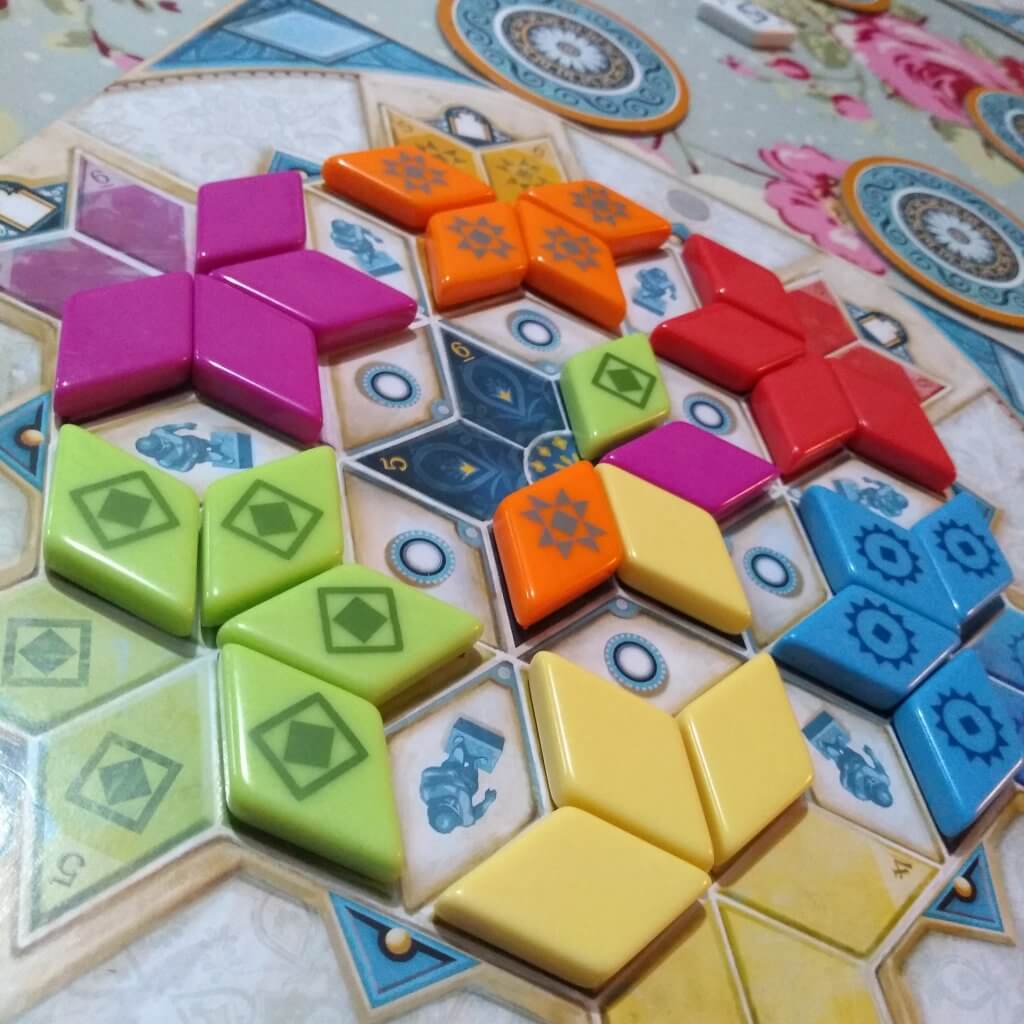
Abstract Strategy Games
Abstract strategy games can also provide a mindful experience. They are abstract in the sense that they don’t have much of a theme but instead rely on strategic thinking to provide an immersive and mindful experience. I have a range of games from Hachette Boardgames all beginning with Q – Qawale, Quixo, Quarto and Quoridor. My current favourite is Qawale – a variant of connect 4 where you need 4 in a row to win. It is a pebble stacking game where you place a pebble on any existing pebble or stack of pebbles. Lift the whole pile and as you move across the board deal out one to each space you cross. The wooden pebbles are incredibly pleasing – they are large and smooth and make a nice clack when you move them across the board.
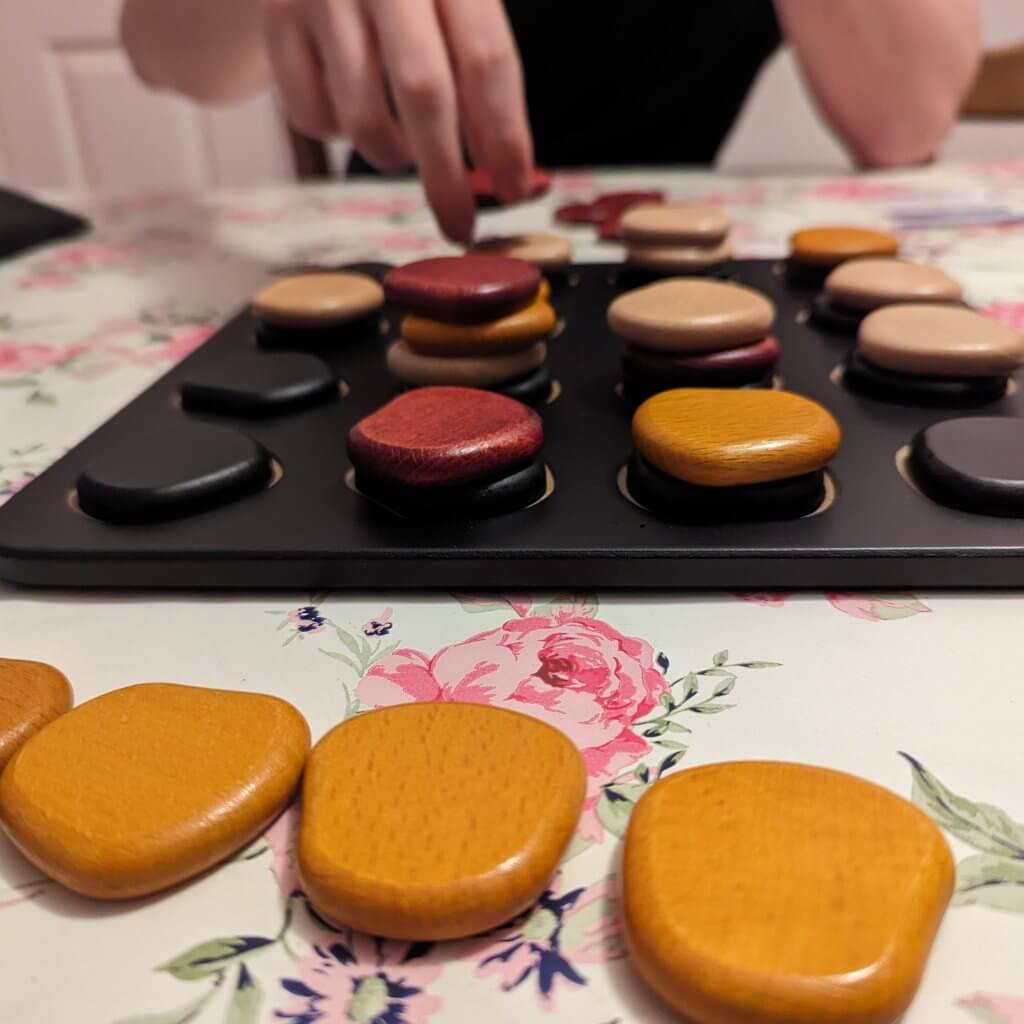
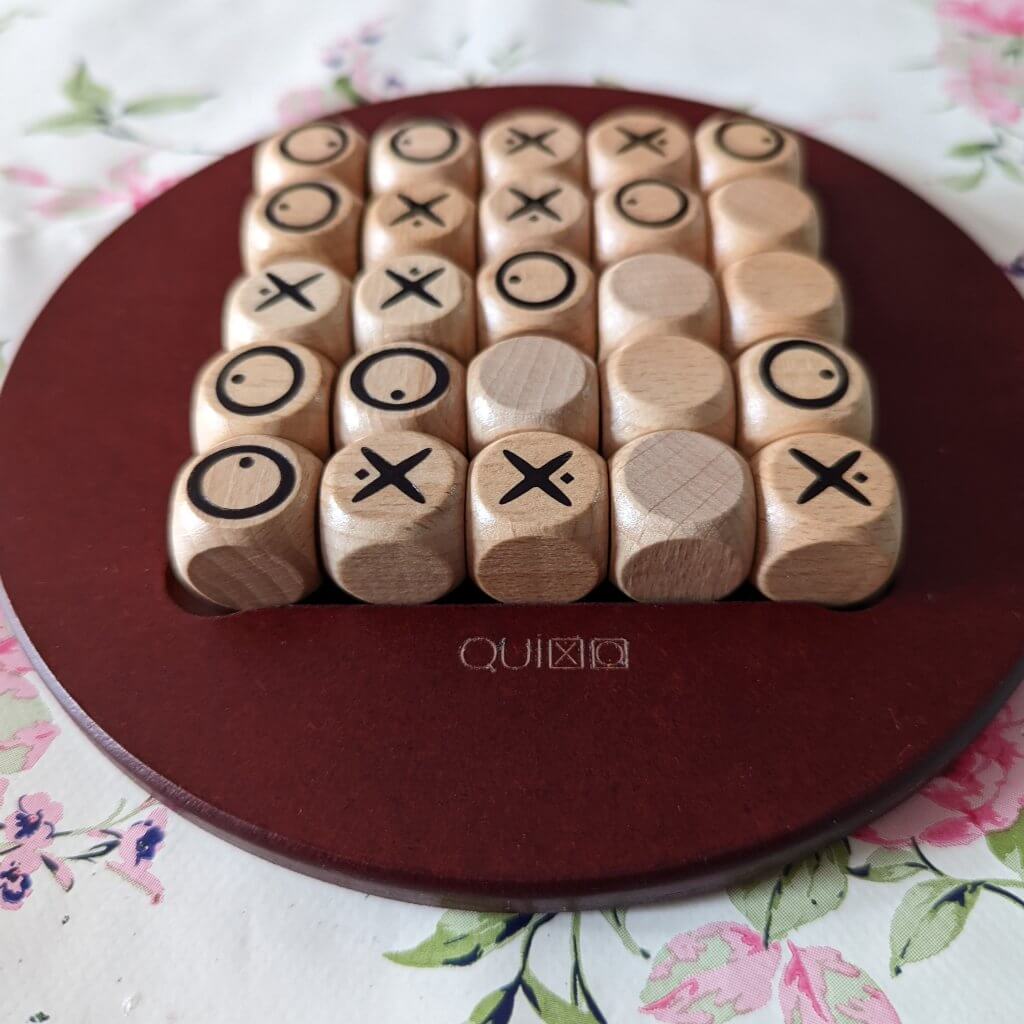
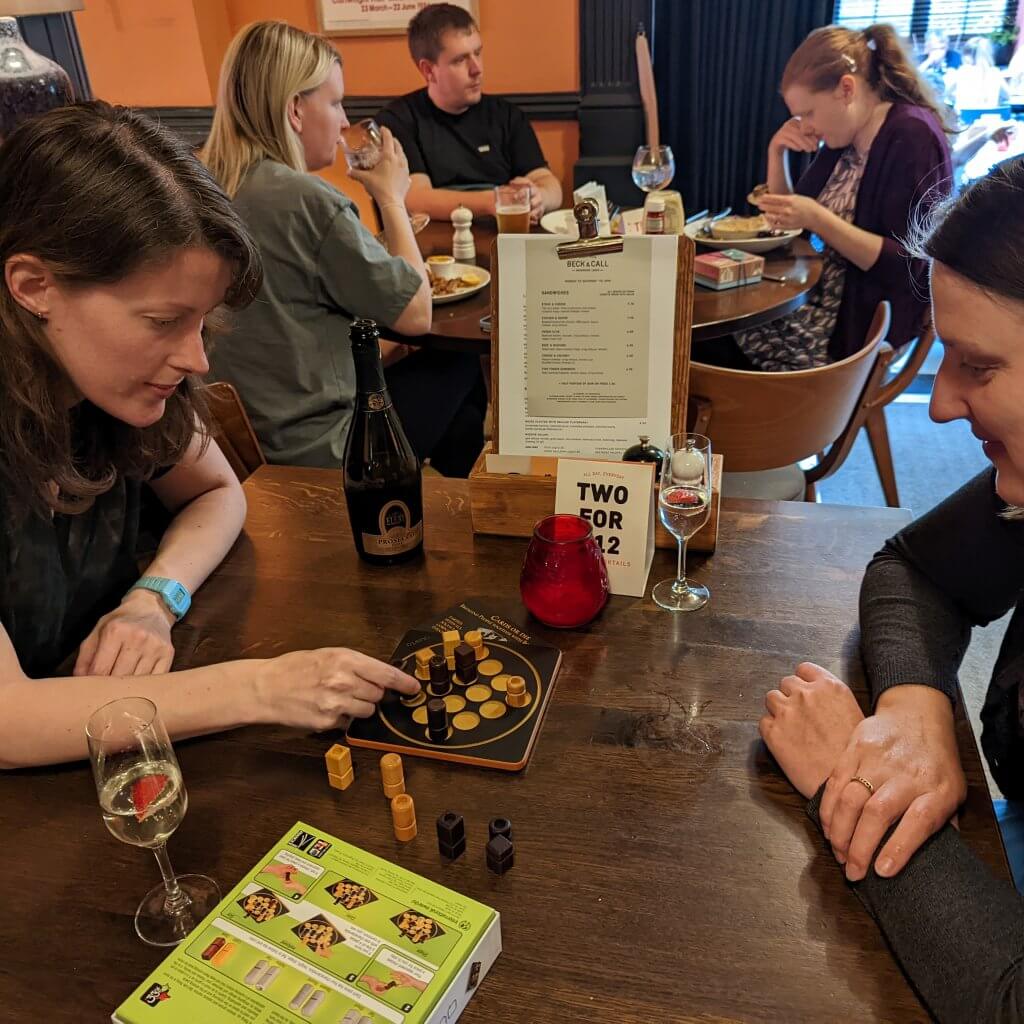
Mancala, Abalone and Nine Men’s Morris pictured below are more traditional variants of this style of abstract strategy game. Easy to learn but with a lot of strategy.
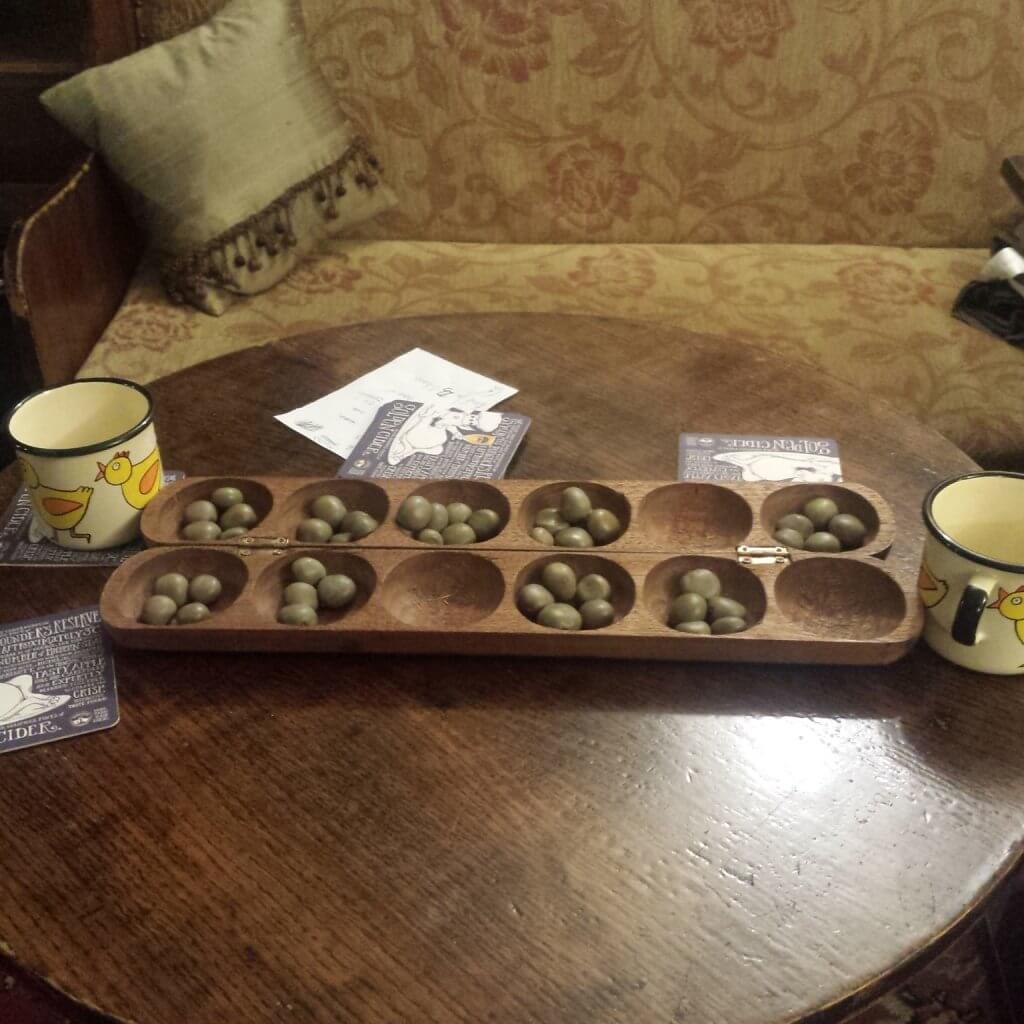
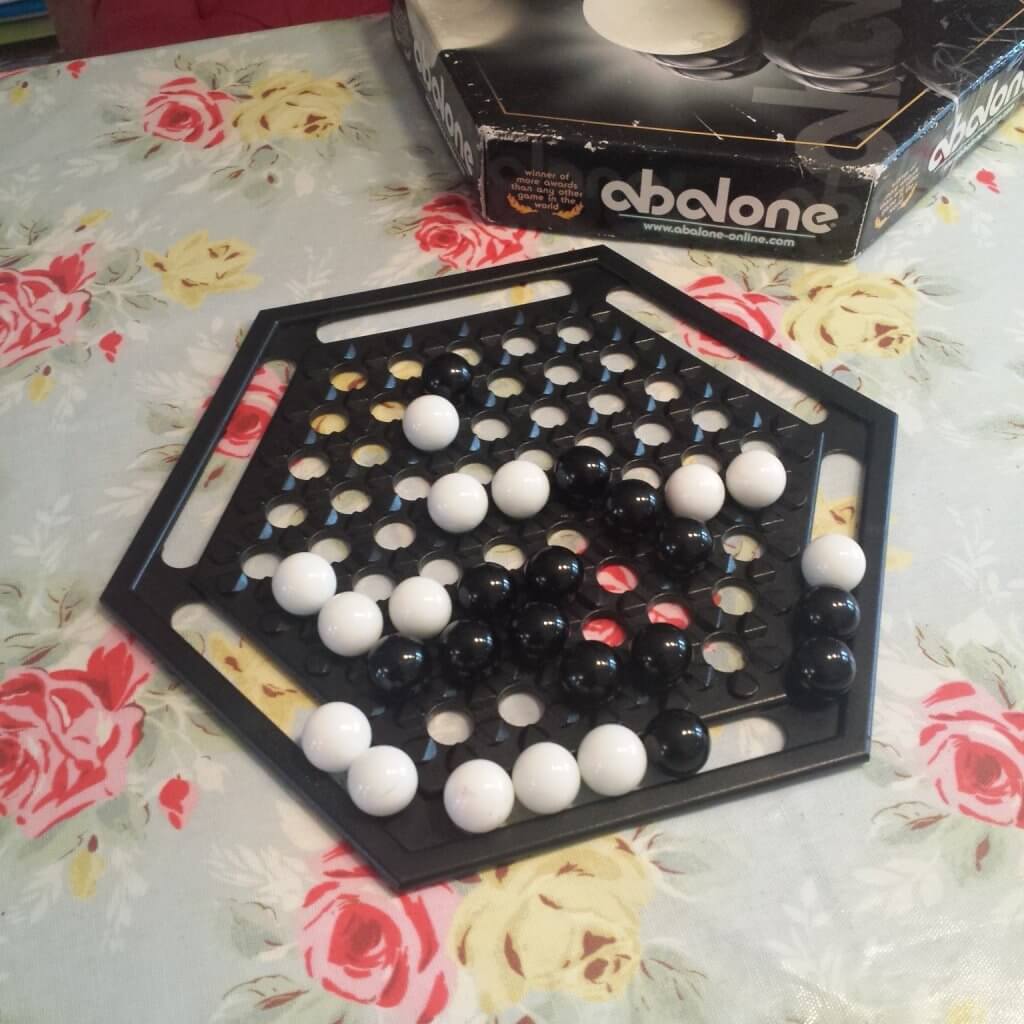
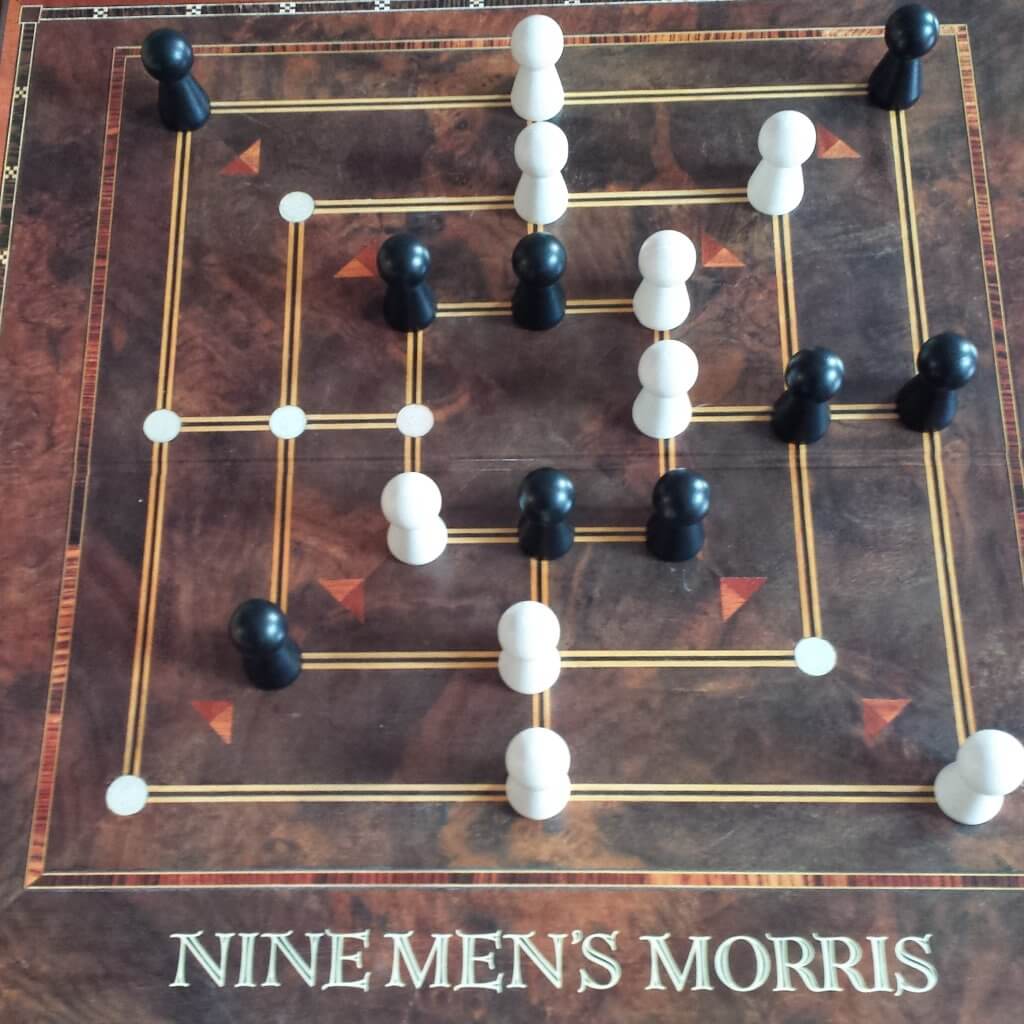
Strong themes and Creative Games
I find that games with strong themes or which demand a high level of creativeness are mindful too. Games like Dixit where you use the intricate artwork on the cards to inspire a word or phrase which connects to your card and enables others to make a connection to a card in their hand. Mysterium has similar style of artwork but in this case you are a ghost communicating through visions to a team of psychics who must work out the manner of your death, the motive and the place. ‘…and then we died’ by Emma Larkins is still one of my favourite story telling games. It uses a set of tarot cards with fragments of text captured on them. You must piece together the words to tell the story of your untimely demise. It is easy to become absorbed in the art work and stories that these games tell.
There are many other games which successfully immerse you in a world much like a good book or movie. The difference here is that your mind still needs to be very present to make tactical, strategic decisions to play the game and not just be carried along by it. You are absorbed in a story which you have agency in.
Magic Maze (a game of stealing magical objects from a shopping mall) is a co-operative game which is played in silence and with a strict 15minute time limit. Everyone is responsible for one aspect of movement and unusually, everyone moves all the pawns. I once taught it to a group in a pub who were so engrossed in their game that the bar staff had been into the room twice with their food before one of them responded. Even then that player looked up and just said ‘chips’ in a panicked tone. You don’t get much more absorbed in the moment than that.
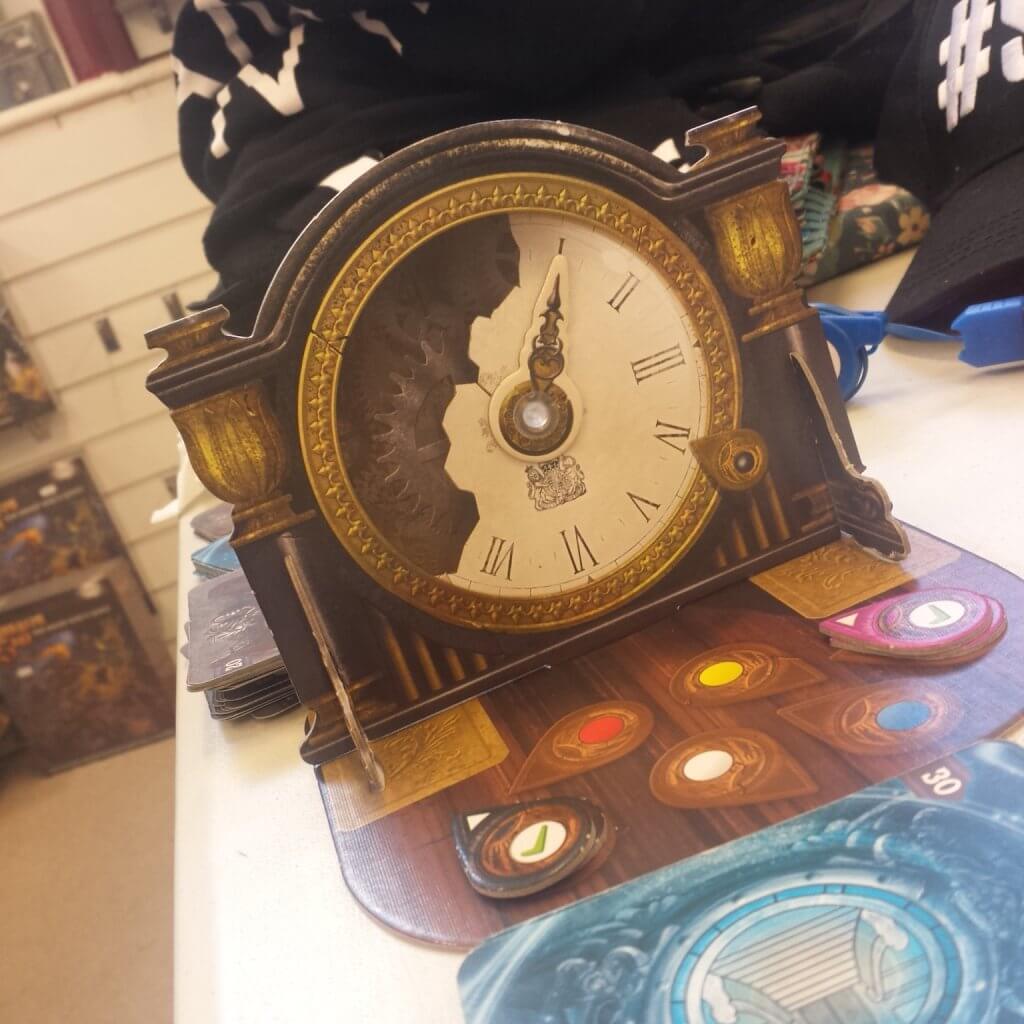
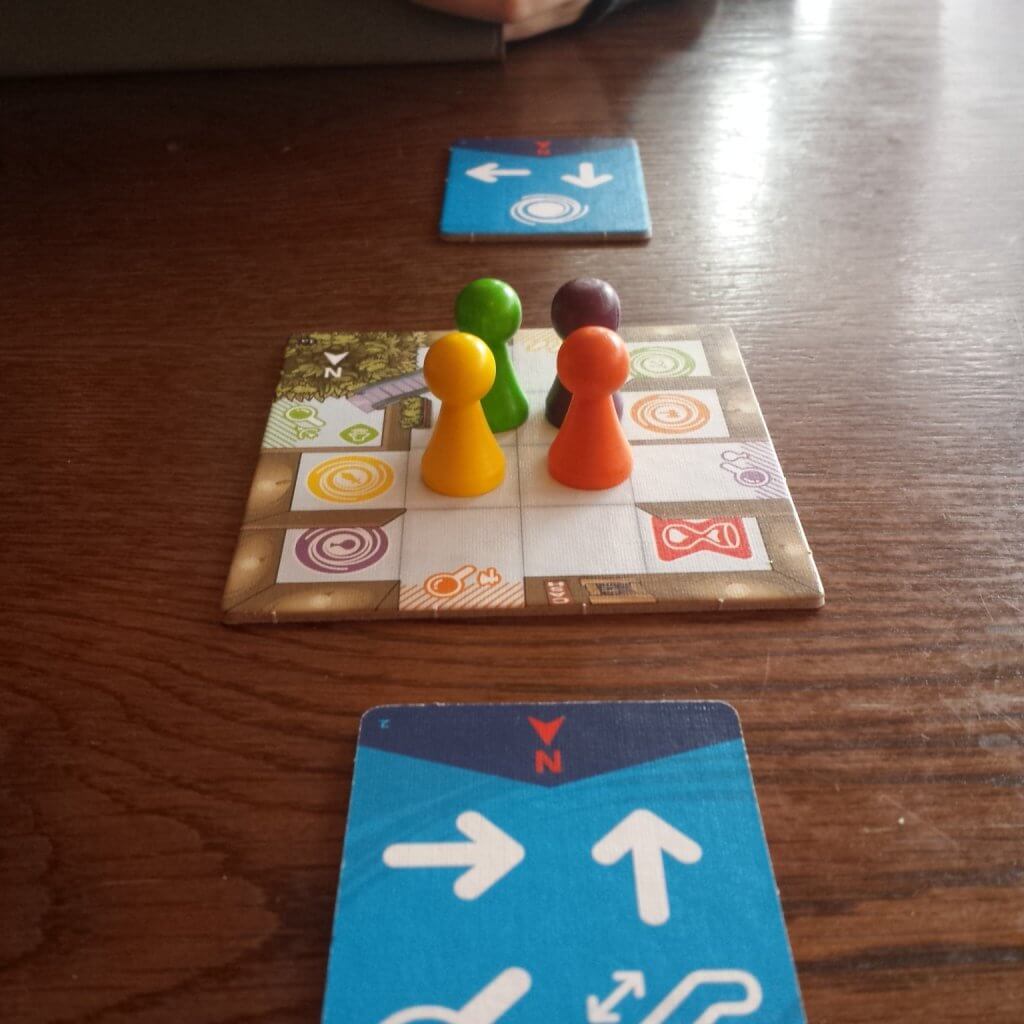
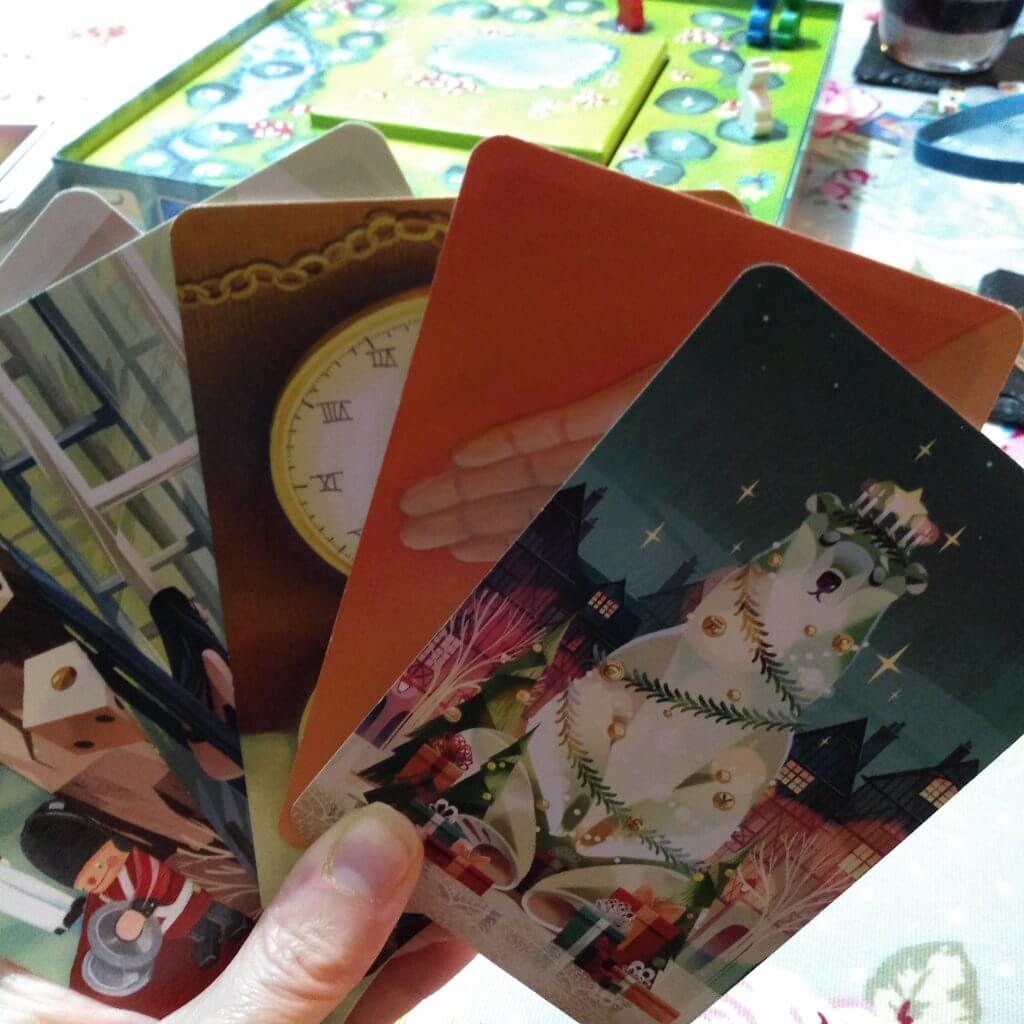
Fast Reactions
Going back to the definition we started with – nothing demands that you ‘take notice and be aware of your mind, body or surroundings’ quite like a game in which you need to be the first to spot something and maybe the first to grab it. While you are playing games that demand a fast reaction, you are physically ready – tensed and ready to grab, your mind is focussed and you are hyper aware of the others at the table who are poised to beat you to it. It’s no wonder these games are so popular: Cobra Paw, Geistes Blitz, Dobble, Zonkers…
But nothing illustrates my point better than Corks. In Corks you have a hand of 4 cards, you pass one of them on to the person to your left, receiving a new card from the person on your right. You all play at once. In the centre of the table are corks (one fewer than the number of players crucially). Your aim is to get 4 matching cards and grab a cork. Once a cork has been grabbed, everyone else can make a mad grab for the remaining corks. If you are the first to get a set of 4, the most entertaining way to play this is to quietly take your cork and just carry on passing cards round till people notice. It’s amazing how many people can take corks without people noticing. They are all completely focussed on the business of getting a set of 4! They are not worrying about or even thinking anything other than I need a blue, they are completely in the moment.
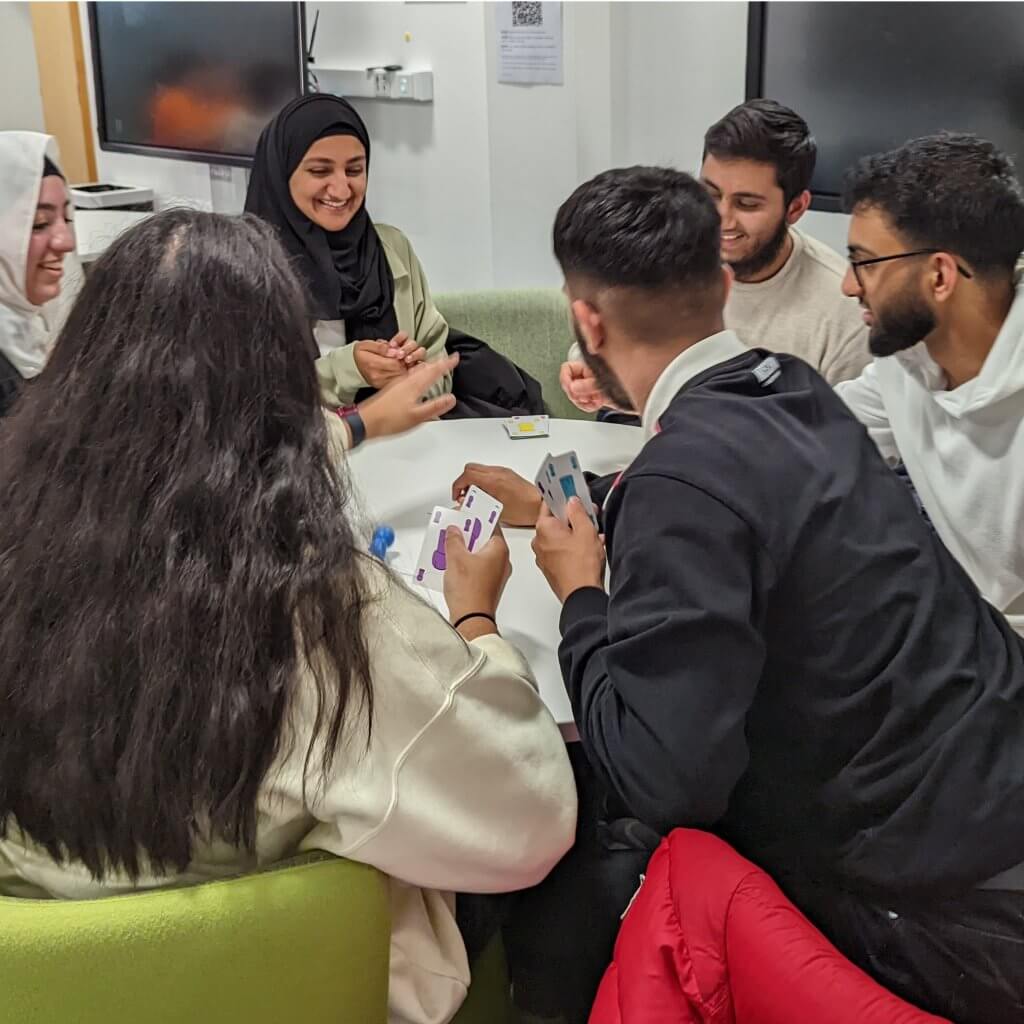
I love boardgames and I love boardgames as a mindful activity. But Mindfulness is so much more than one thing. I think that sometimes gets lost in the day to day of social media. When we think about mindfulness it doesn’t have to be a big action or a new hobby, we can just look at our lives and consider what activities we already do that are mindful or how we could be more mindful in what we do. What mindful activities do you do? What does mindfulness mean to you? – I’d love to hear your thoughts.
If you want to try out any of the games mentioned or find out more about booking me for your event why not come along to one of my events.
